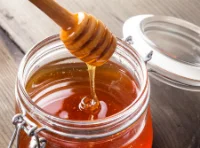What's in Your Herbal Remedy?
/Herbal supplements (botanicals; plant-based medicine) have been used for medicinal purposes for thousands of years. Today they are recognized for having drug-like effects such as improving mood. Products that can have medicinal effects also carry risk, especially if taken with other medicines or supplements. However, most over-the-counter herbal supplements are not subjected to the same scientific scrutiny and aren't as strictly regulated as medications.
As noted in our article about dietary supplements, makers of herbal supplements are not required to submit their products for FDA approval before going to market. Their only requirement is to demonstrate their products meet quality manufacturing standards. Studies have shown this is not enough: Many over-the-counter herbals are contaminated or substituted with alternative plant species and fillers that are not listed on the label. According to the World Health Organization, this adulteration of herbal products is a threat to consumer safety.
Before buying herbal supplements, do your homework and investigate potential benefits and side effects. Follow our tips below to help identify quality herbal supplements. Before taking an herbal supplement, talk your health practitioner--especially if you take other medications, have chronic health problems, or are pregnant or breastfeeding.
Quality Factors: Look for products that indicate standardized extracts; no fillers, preservatives/additives; naturally harvested; fair-trade/sustainable manufacturing practices.
Quality Control: Quality control (QC) refers to processes for maintaining the purity of a product. Without QC, there is no assurance that the herb contained in the bottle is the same as what is stated on the outside. One of the key solutions to the QC problem that exists in the United States is for manufacturers and suppliers to adhere to standardized manufacturing practices.
Products should indicate they are third-party tested. Look for a USP (U.S. Pharmacopeia) seal of approval. Check products (and product recalls) on these websites: Council for Responsible Nutrition, ConsumerLabs, and the National Institutes of Health Dietary Supplement QA Program. Check the product website for more information.
Image Attribution: elenathewise/bigstockphoto.com





